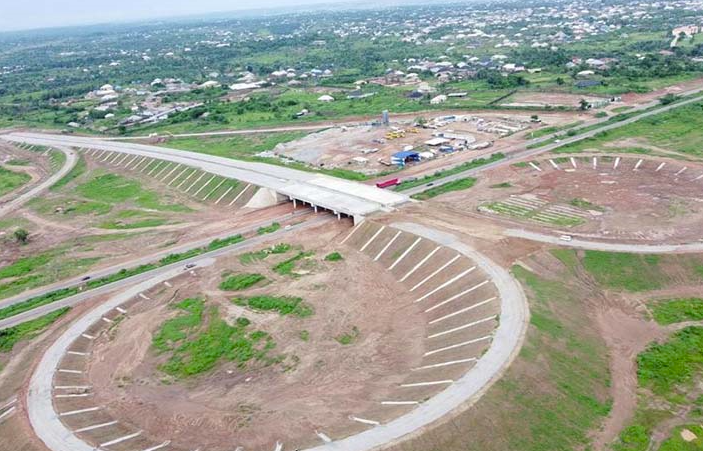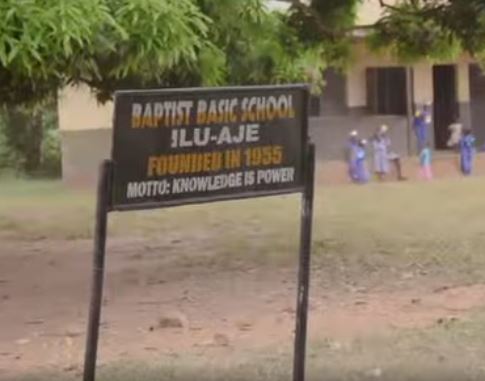Ibadan Circular Road Project: Impact on Villages, Setbacks, and Future Opportunities
The Ibadan Circular Road project is one of the biggest infrastructure undertakings in Oyo State. It was conceived in 1995 during Gen. Sani Abacha’s military government and approved by him through Col. Chinyere Nwosu, who was the Military Administrator of Oyo State at that time. This road project is designed to encircle the whole entire city and even promote economic growth in Ibadan.
The project, spanning about 110 kilometers, which is expected to bring modern transportation and economic expansion to the city, although it has faced alot of setbacks and challenges along the line, most especially for communities who are affected by planned demolitions.
The spanning approximately 110 kilometers, the project is segmented into four sections:
- South-East: 32.2 km
- North-East: 20.8 km
- North-West: 33.0 km
- South-West: 24.0 km
In this article, we’ll reveal how this circular road project will impact local villages, also talk about the challenges that were posed by setbacks, and as well analyze what it means for Ibadan’s future.
What is the Ibadan Circular Road?
This is a comprehensive road network designed to decongest traffic and provide an efficient bypass for travelers and freight around Ibadan. The Circular Road in Ibadan covers major regions, linking key expressways and thereby reducing the burden on inner-city routes.
Objectives: Designed to reduce inner-city traffic, it connects major expressways and creates a corridor for easier transportation of goods and services.
Which Villages Are Affected by the Ibadan Circular Road?
Directly Affected Villages: The project has actually created a negative impact for some villages around Ibadan, most especially the areas close to the South-East and South-West segments. Villages like Akanran, Olode, Olosa Oko, Rehab, Deedun along Akinyele and other villages along the planned routes have seen shifts in local plans, including property impacts and even adjustments due to road expansion.
Indirectly Affected Communities: Even communities not in the immediate construction path may experience increased economic activities, transportation shifts, and even possible relocations for better connectivity.
Ibadan Circular Road Setback: Challenges and Delays
Delays in Execution: Initially, the project encountered setbacks due to financial constraints (coz its a big project) planning adjustments, and coordination issues between the state and construction companies.
Environmental and Social Challenges: Environmental factors, such as the need to preserve natural areas or mitigate construction impacts, have required adjustments. For example, rerouting certain segments to avoid sensitive areas has delayed progress.
Economic Impact of Setbacks: For local businesses and the transportation sector, the setbacks have meant a delay in reaping the economic benefits projected by the state government.
Ibadan Circular Road Demolition: The Cost of Progress
Demolitions in Affected Areas: As we know in any infrastructure project, there will always be demolitions for expansion and great work down. The government has provided compensation packages and also engaged with residents who were affected by the Ibadan Circular Road demolition plans.
Minimizing Impact on Residents: Oyo State has also committed to minimizing disruptions where possible, although some homes and businesses are still directly impacted.
Community Reactions and Concerns: While many residents support the project’s long-term benefits, some have expressed concerns about fair compensation, loss of land, and even changes to local lifestyles.
The government has also addressed concerns from residents affected by the project, ensuring that demolitions are minimized and that fair compensation is provided where necessary.
Benefits of the Ibadan Circular Road for Ibadan’s Future
Economic Growth: If this road project comes to reality trust me, it’ll open up Ibadan to new business opportunities, welcome foreign and local investors, reduce transportation costs, and attract alot of investment by creating easy access to and from the city.
Sound interesting? Oh yea.
Improved Traffic Flow: The Circular Road will serve as a bypass thereby reducing the burden on inner-city routes, significantly reducing congestion within Ibadan, allowing quicker and easier movement of goods.
Enhanced Property Values: Properties near major roads often see increased value, benefitting both local landowners and also new investors attracted to Ibadan’s growing urban infrastructure.
Future Developments and the Road Ahead
Timeline for Completion: The current administration, which is led by Governor Seyi Makinde, has set ambitious goals to complete the remaining phases of the project with little or minimal delays.
Long-Term Economic Impact: Over time, this Circular Road is expected to attract alot of businesses, including warehousing, retail, and even logistics companies, to the outskirts of Ibadan.
Sustainability and Infrastructure Upkeep: Plans are in place to ensure the road’s long-term maintenance, ensuring it serves as a very lasting infrastructure benefit to Ibadan.
Finally, The Ibadan Circular Road is more than just a road; it’ll push Ibadan towards modernization, connectivity, and even regional economic growth. and of course, the challenges such as demolitions and setbacks have really tested the project’s progress, the road’s completion promises a new era for Ibadan. I feel for the villagers affected by the Ibadan Circular Road Coz they may face temporary disruptions, but they stand to gain long-term benefits from the enhanced accessibility and economic opportunities it will bring. This project is a milestone for Oyo State, setting a model for infrastructural advancement in Nigeria.
It is actually unfair to some residents that the road’s project of a 500-meter corridor on both sides has rendered at least 6,000 people homeless and has affected at least 12 communities, with 1,000plus houses has been marked for demolition in Oluyole Local Government alone.
But Governor Seyi Makinde stated he won’t demolish any houses outside of 150 meters as planned also said any houses that have already been built outside of 150 meters would be integrated into the plan.
Ibadan Circular Road FAQs
Which villages are affected by the Ibadan Circular Road?
Villages such as Akaran, Fashade, Igbalefa, Adigbe, Olosa oko, Deedun-Oloje , Alase, Dare,Isase,Akamo,Ogido,Oleke Meji, Aba Osho, Badeku face direct impacts, including property adjustments and construction-related disruptions.
What are the most primary setbacks or delays of the Ibadan Circular Road project?
Financial constraints, environmental challenges, and also community concerns have delayed some phases of the project.
How will the Ibadan Circular Road impact local businesses?
The project will definitely enhance transportation efficiency, reduce costs, and attract investment, benefitting businesses across Ibadan.
What has been done to minimize the impact of demolitions?
The state has taken steps to compensate affected residents and reduce the extent of necessary demolitions.
When is the Ibadan Circular Road expected to be completed?
While timelines are subject to adjustments, the government aims to complete the project as efficiently as possible.




Post Comment